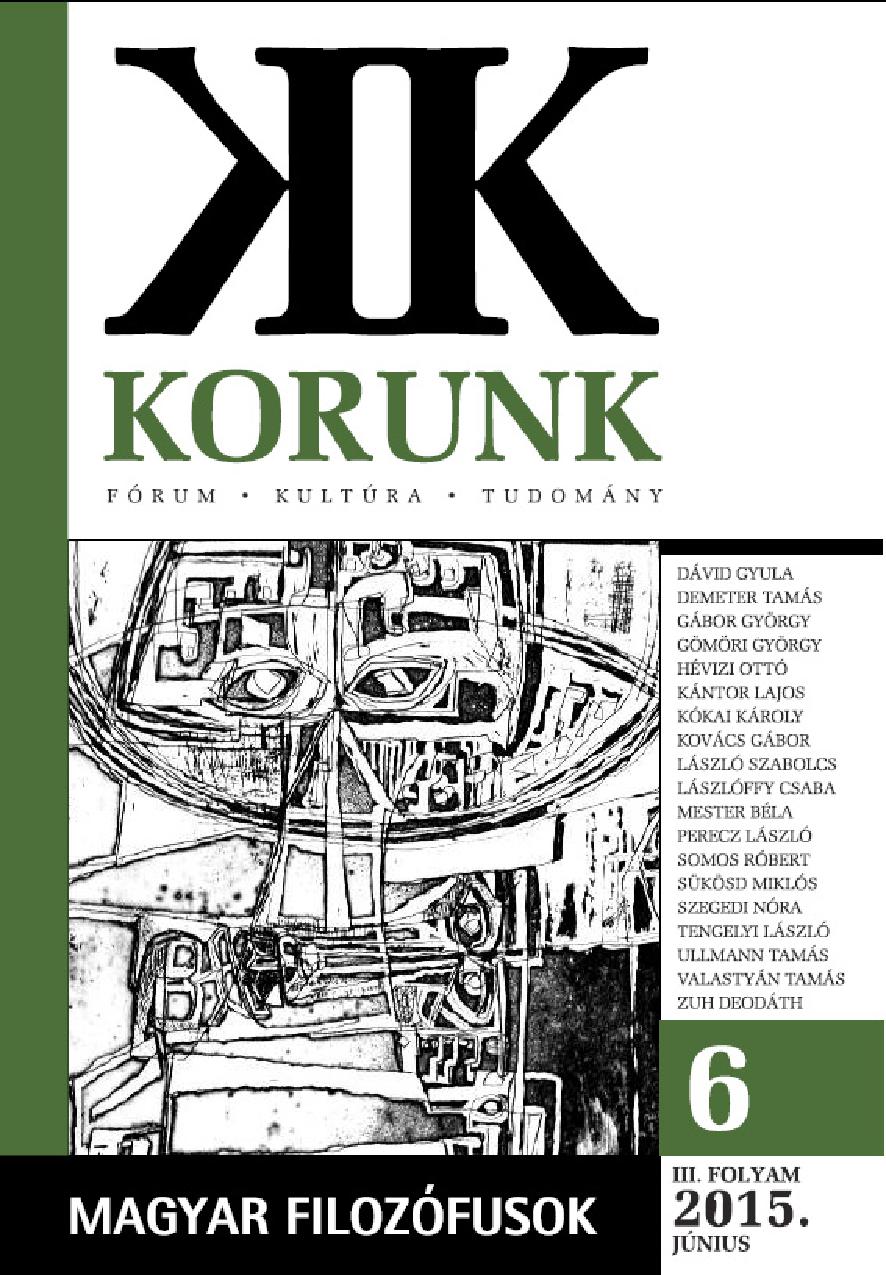A magyar filozófia, amint saját történetét írja
Hungarian Philosophy as It Writes Its Own History
Author(s): Béla MesterSubject(s): Philosophy, Philosophical Traditions
Published by: Korunk Baráti Társaság
Keywords: Boëthius de Dacia; East-Central Europe; history of philosophy; Hungarian philosophy; János Erdélyi; János Pósaházi; József Rozgonyi
Summary/Abstract: János Erdélyi, a 19th century Hegelian classic of the historiography of Hungarian philosophy has summarised his narrative in the following scheme. The first epoch was the prehistory of Hungarian thought, formulated in a foreign language, Latin; the second one was the long period of the turn from Latin to Hungarian; and the third and last one is when Hungarian philosophy writes its own history, beginning with the foundation of the Hungarian Academy of Sciences. After Erdélyi’s masterpiece on Hungarian philosophy, there have been no serious candidates for a new synthesis until the second half of the 20th century. This paper offers an overview of the last two centuries of the history of Hungarian philosophy in the mirror of its paradigmatic errors. First, it discusses the case of Boëthius de Dacia as a Hungarian mediaeval philosopher, and then the misinterpretation of the early modern works of János Pósaházi and József Rozgonyi, following the pattern of the history of reception. According to the hypothesis of this paper, all these paradigmatic errors have been caused by a wrong formulation of the connection between the universal and the national narratives of the history of philosophy. After an overview of the usual solutions to this problem in the Hungarian historiography of philosophy, the author outlines a new method for establishing the paradigm of an East-Central-European history of philosophy, above, but not instead of the national narratives, which can also modify the universal narrative in several details.
Journal: Korunk
- Issue Year: 2015
- Issue No: 06
- Page Range: 4-9
- Page Count: 6
- Language: Hungarian

